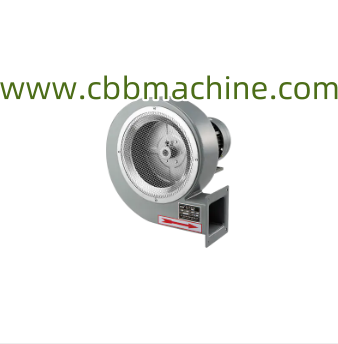Understanding the Importance of Choosing the Right Differential Shaft Supplier .In the world of manufacturing, precision and reliability are essential to ensure that production processes run smoothly. One crucial component that plays a vital role in several industries, from packaging to textile production, is the differential shaft. This essential machine component helps maintain consistent tension across rolls, providing an efficient solution to handle various materials.
If your production line requires handling multiple rolls of material simultaneously, such as in winding or slitting operations, choosing the right Differential Shaft Supplier becomes crucial. A high-quality differential shaft can enhance your production capabilities, reduce waste, and extend the lifespan of your equipment. In this article, we will explore the role of differential shafts in manufacturing and why it’s vital to select a reliable supplier.
What is a Differential Shaft?
A differential shaft, commonly used in industries like film, paper, foil, and textile production, is designed to provide independent tension control for each roll during the winding or slitting process. It is equipped with adjustable torque and tension mechanisms, allowing each roll to function independently without affecting the others.
In simple terms, a differential shaft ensures that the rolls maintain consistent tension while being wound or unwound, preventing issues such as material wrinkles, uneven winding, or roll damage. This is particularly important for industries that rely on smooth and precise roll-to-roll operations, where any inconsistency can lead to defects in the final product.
Key Benefits of Differential Shafts
Precise Tension Control The primary function of a differential shaft is to provide independent control over the tension on each roll. This precision ensures that all materials are processed evenly, resulting in smoother, higher-quality products with minimal waste.
Enhanced Production Efficiency Differential shafts can improve overall production efficiency by reducing downtime, material waste, and the need for constant adjustments. With proper tension control, the production process becomes more stable and efficient, ensuring a smooth flow of materials.
Flexibility for Different Material Types Different materials require varying levels of tension to be wound or processed correctly. A differential shaft allows for independent adjustment, making it ideal for handling diverse materials, including delicate films, thick papers, and other substrates that require specific tension settings.
Reduced Equipment Wear and Tear By ensuring proper tension across multiple rolls, differential shafts help reduce strain on other components of the machinery. This, in turn, minimizes wear and tear, prolonging the life of the equipment and reducing maintenance costs.
Cost-Effective Though the initial investment in high-quality differential shafts may seem significant, their ability to reduce material waste and downtime ultimately makes them a cost-effective solution in the long run. The precision they offer leads to fewer defects, reducing the need for rework or scrap materials.
Choosing a Reliable Differential Shaft Supplier
Selecting a trustworthy Differential Shaft Supplier is paramount to ensuring that your production line continues to operate at peak performance. When evaluating potential suppliers, consider the following factors:
1. Customization Capabilities
Every production line is unique, with different needs in terms of shaft size, tension control, and material specifications. A skilled Differential Shaft Supplier should be able to customize the shafts according to your specific requirements, ensuring that they are tailored to your exact production needs.
2. Quality Assurance
The performance of your differential shaft will directly impact the quality of your end products. A reputable Differential Shaft Supplier will have strict quality control measures in place, ensuring that every shaft is durable, precise, and made from high-quality materials. Always ask for certifications or documentation regarding their manufacturing standards.
3. Technical Expertise and Support
Beyond supplying the product, a trusted Differential Shaft Supplier should also offer technical support. This support can include assistance with installation, maintenance tips, troubleshooting, and guidance on how to maximize the lifespan of your differential shaft.
4. Timely Delivery and Stock Availability
Any delays in receiving parts can result in costly downtime for your production line. Ensure that the supplier you choose has a track record of timely deliveries and maintains an adequate stock of differential shafts to meet your needs quickly.
5. Competitive Pricing
While quality should always be the priority, pricing is also a key consideration. A good Differential Shaft Supplier will offer competitive pricing, giving you the best value for your investment without compromising on quality.
How to Know When to Replace or Upgrade Your Differential Shaft
Differential shafts are built to last, but over time, they can experience wear and tear due to continuous use. Here are some signs that it may be time to consult your Differential Shaft Supplier for a replacement or upgrade:
Uneven Tension: If you notice uneven tension across the rolls or inconsistent winding, it could be a sign that the differential shaft is no longer functioning properly.
Increased Scrap Material: An increase in scrap materials or defects in the finished product can indicate that the tension control is not performing as expected.
Visible Damage: Any physical damage to the shaft, such as cracks, bends, or excessive wear, should be addressed immediately to prevent further complications.
Conclusion
A differential shaft is an essential component for maintaining tension control during winding and slitting operations, ensuring smooth and consistent production. By choosing the right Differential Shaft Supplier, you can ensure that your equipment operates efficiently, with minimal downtime, lower waste, and improved product quality. Whether you are looking for a custom solution, technical support, or a replacement, a reliable supplier can help enhance your production line’s performance.

